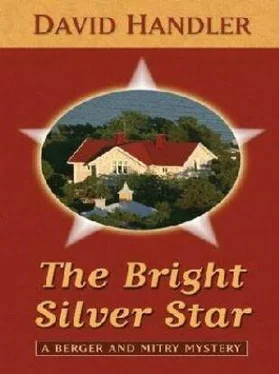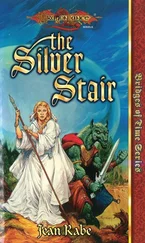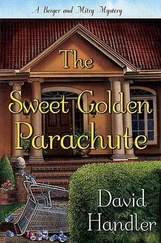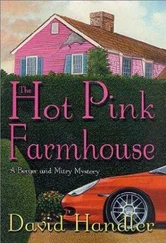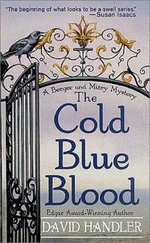David Handler - The Bright Silver Star
Здесь есть возможность читать онлайн «David Handler - The Bright Silver Star» весь текст электронной книги совершенно бесплатно (целиком полную версию без сокращений). В некоторых случаях можно слушать аудио, скачать через торрент в формате fb2 и присутствует краткое содержание. Жанр: Полицейский детектив, на английском языке. Описание произведения, (предисловие) а так же отзывы посетителей доступны на портале библиотеки ЛибКат.
- Название:The Bright Silver Star
- Автор:
- Жанр:
- Год:неизвестен
- ISBN:нет данных
- Рейтинг книги:5 / 5. Голосов: 1
-
Избранное:Добавить в избранное
- Отзывы:
-
Ваша оценка:
- 100
- 1
- 2
- 3
- 4
- 5
The Bright Silver Star: краткое содержание, описание и аннотация
Предлагаем к чтению аннотацию, описание, краткое содержание или предисловие (зависит от того, что написал сам автор книги «The Bright Silver Star»). Если вы не нашли необходимую информацию о книге — напишите в комментариях, мы постараемся отыскать её.
The Bright Silver Star — читать онлайн бесплатно полную книгу (весь текст) целиком
Ниже представлен текст книги, разбитый по страницам. Система сохранения места последней прочитанной страницы, позволяет с удобством читать онлайн бесплатно книгу «The Bright Silver Star», без необходимости каждый раз заново искать на чём Вы остановились. Поставьте закладку, и сможете в любой момент перейти на страницу, на которой закончили чтение.
Интервал:
Закладка:
They called it the House of Turkish Delights.
Because the Acars offered way, way more than the usual minimart menu of candy, soda, and Lotto tickets. They offered Nema’s own homemade native pastries and deliciously strong, sweet Turkish coffee. Her baklava was the best Mitch had ever tasted. She also made boreks, which were triangles of layered, wafer-thin pastry filled with chopped nuts and cinnamon. And lalangas, which were fried pastry dipped in syrup and brushed with powdered sugar. The lalangas were especially popular with the workmen who’d grown up on fried dough, a regional delicacy.
The House of Turkish Delights was Dorset’s best-kept secret. The local workmen, who considered The Works a yuppified tourist trap, had staked it out as their place. And so they told no one about it. Mitch sure as hell didn’t. He didn’t dare tell Will that he was buyingpastry from his competitor, and he couldn’t breathe so much as a word to Des-every time he inhaled the air in there he was breaking his diet.
The Acars were the first native-born Turks ever to live in Dorset. They were in their early thirties. Nema was tiny and slender, with large, lustrous dark eyes that reminded Mitch of the ’50s film actress Ina Balin. Always, she wore a Muslim headscarf. Nuri was courtly and unfailingly polite. Almost but not quite unctuous. The two of them were from Istanbul, where Nuri had graduated from Bosporus University with a degree in mathematics. Nema told Mitch they had emigrated to America because their parents didn’t approve of the marriage. Mitch couldn’t imagine why they didn’t, since any two people who could work side by side fourteen hours a day and never stop smiling clearly belonged together.
“And how are you today, Mr. Berger, sir?” Nema said to him as Mitch pointed directly to the lalanga that had his name on it. “I’d feel a lot better if you’d call me Mitch.” “Very well, but you are a naughty, naughty boy, Mr. Mitch.” “God, don’t tell me a certain resident trooper stopped by.” “No, no. I was reading your review in this morning’s newspaper, of The Dark Star, and you almost made me spit up my orange juice.” Nema let out a devilish little cackle. “Most amusing and yet insightful.”
He thanked her and hopped back into his truck, waving to Nuri, who was filling the tank of a minivan that had New York plates. Then Mitch resumed his trip into town, devouring his gustatory no-no in hungry, fat-boy bites.
It was not easy to find a parking place near The Works. Not with all of the news crew vans and tourists taking up every available curbside space. Mitch had to leave his truck in the A amp; P parking lot and hoof it two blocks. The traffic on Big Brook Road was unbelievably hectic. Some nut in an immense white Cadillac Escalade almost ran him down when he tried to cross the street. Honestly, he would not mind when Labor Day arrived and everyone left. Because Dorset didn’t feel like Dorset right now. It felt like a resort town crowdedwith hyperactive strangers. And this upset Mitch’s new sense of order in his life. New York was his place for rushing around on noisy streets that were teeming with people. Dorset was his place for quiet reflection. Briefly, he wondered if he was feeling bothered this way because he was becoming rigid and middle-aged.
He decided this could not be possible.
Dorset’s sprawling 130-year-old piano works had provided jobs for generations of highly skilled local workers until it shut its doors in the 1970s. Often, there had been talk of leveling the abandoned riverfront factory. Instead, Will and Donna Durslag had rescued it. Not a small undertaking. They’d had to sandblast its red brick, reroof it, repoint the mortar, restore the windows-and that was just the shell. Inside, the 148,000-square-foot factory had no plumbing or wiring, no heat, no nothing. But the architect and contractor who’d tackled the job were tremendously talented, and the transformation was remarkable. The old brick eyesore was now a lively Europeanstyle food hall with stalls selling fresh, locally grown produce and eggs, cheeses, olives, fresh-baked breads and desserts, pizza, gelato, fresh fruit smoothies. There was a coffee bar that stayed open until ten at night. There were nuts and grains sold in bulk, coffee beans, teas, spices. There was a butcher, a fishmonger, a deli counter offering salads and sandwiches and take-home meals like veal piccata and meat loaf.
An informal eating area anchored the center of the hall with tables and chairs where people could meet for a sandwich or read the newspaper over a cup of coffee. An arcade housed shops like Jeff’s Book Schnook and a wine store. Several of the retail spaces still hadn’t been leased yet. There were condominium apartments that faced right out onto a newly constructed riverfront boardwalk. These were mostly occupied.
Mitch did not see Des there yet so he stopped in to sign books for Jeff, as promised. A glass wall separated his shop from the food hall. The first time Mitch had walked in the door of the Book Schnook he knew instantly that it was every publishing person’s dream bookshop. It felt more like a private library than it did a place of business. The space was two stories high with towering dark-wood bookcases. Rolling library ladders allowed customers to reach the higher volumes. A spiral staircase led up to a wraparound loft where there were even more books. Jeff had filled his place with cozy armchairs and brass reading lamps. There was a huge fireplace in the old red brick exterior wall, and tons of little nooks and crannies where customers could browse for hours in front of the windows as sailboats scudded past on the Connecticut River. Often, some very tasty music was playing. Right now, Ella Fitzgerald was singing Cole Porter.
Jeff’s shelving system was beyond quirky. Nothing, but nothing, was alphabetical. His own favorite authors were arranged near the front on a wall of shelves he called Store Picks. It was a fluid and eclectic array, subject to his latest whim. This week, his picks included the contemporary novelist Richard Ford, British-born travel writer Jonathan Raban, the late food essayist M.F.K. Fisher, the bleak ’50s hardboiled crime writer Jim Thompson, Dorothy Parker, Emily Dickinson, Philip K. Dick, Wallace Stegner and H.L. Mencken.
Popular sellers that Jeff didn’t like but had to offer were stashed way up on the second-floor shelves. If it was Mary Higgins Clark that a customer wanted, or a copy of The Corrections by Jonathan Franzen, Jeff made them go climb for it. It was his store and his system. And it was just about the choicest bookstore Mitch had ever been in. Jeff had everything a bookseller could ask for.
Everything except for customers. The Book Schnook was deserted. And so silent after the din of the food hall outside that Mitch felt as if he’d just entered a shul.
The little guy in his crooked black-framed glasses was dusting stock in hushed solitude when Mitch got there, sucking his cheeks in and out in a decidedly carplike manner. Jeff’s shopkeeper outfit wasn’t much different from his hiking outfit. He still wore shorts and sandals with dark socks. Only his shirt was different-Jeff had on an oversized Book Schnook T-shirt adorned with a portrait of Dan Quayle and the store’s motto: A Mind Is a Terrible Thing to Lose.
“Hey, Mitch, good to see you!” he exclaimed, dashing back to hisstoreroom. He returned a moment later toting two cartons of Mitch’s paperback reference volumes. They began unloading them onto a library table. “You’re doing me a real favor, man. Believe me, I need all of the help I can get.”
“Jeff, I’m an author,” Mitch chided him gently. “You’re the one who’s helping me.”
He got started signing the books, passing each one along so Jeff could slap an Autographed by Author sticker on its cover. As they worked their way through the stack a boy of twelve or so came in the door, looking very intimidated.
Читать дальшеИнтервал:
Закладка:
Похожие книги на «The Bright Silver Star»
Представляем Вашему вниманию похожие книги на «The Bright Silver Star» списком для выбора. Мы отобрали схожую по названию и смыслу литературу в надежде предоставить читателям больше вариантов отыскать новые, интересные, ещё непрочитанные произведения.
Обсуждение, отзывы о книге «The Bright Silver Star» и просто собственные мнения читателей. Оставьте ваши комментарии, напишите, что Вы думаете о произведении, его смысле или главных героях. Укажите что конкретно понравилось, а что нет, и почему Вы так считаете.
